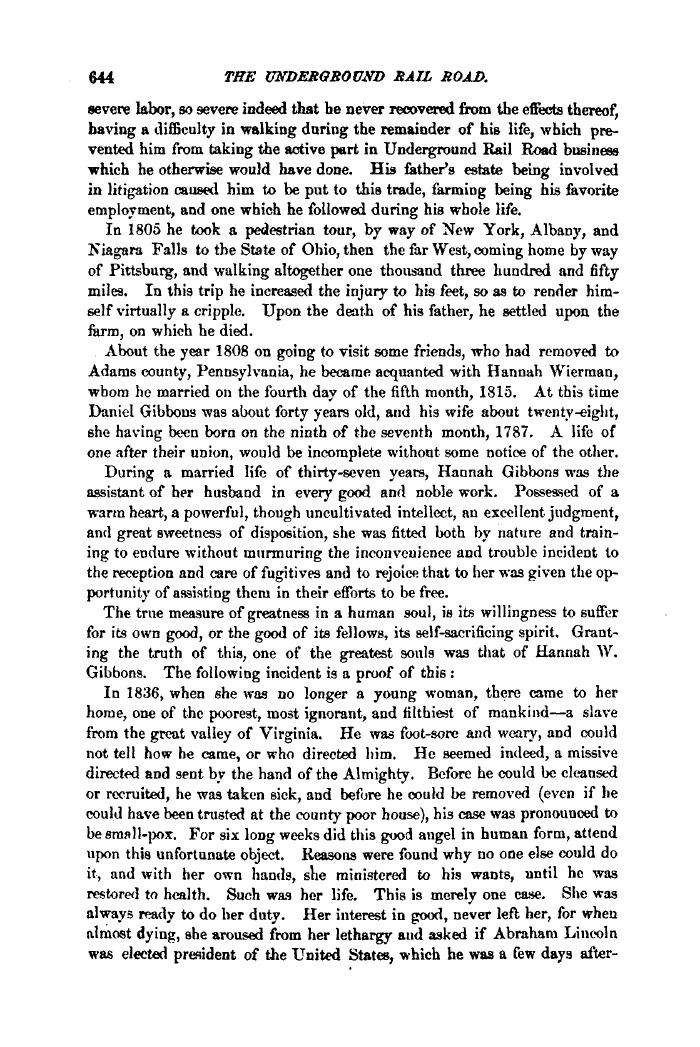 |
||||
 |
||||
| 644 THE UNDEBGBOUXD SAIL ROAD. severe labor, so severe indeed that he never recovered from the effects thereof, having a difficulty in walking daring the remainder of his life, which prevented him from taking the active part in Underground Rail Road business which he otherwise would have done. His father's estate being involved in litigation caused him to be put to this trade, farming being his favorite employment, and one which he followed during his whole life. In 1805 he took a pedestrian tour, by way of New York, Albany, and Niagara Falls to the State of Ohio, then the far West, coming home by way of Pittsburg, and walking altogether one thousand three hundred and fifty miles. In this trip he increased the injury to his feet, so as to render himself virtually a cripple. Upon the death of his father, he settled upoa the farm, on which he died. About the year 1808 on going to visit some friends, who had removed to Adams county, Pennsylvania, he became acquanted with Hannah Wierman, whom he married on the fourth day of the fifth month, 1815. At this time Daniel Gibbous was about forty years old, and his wife about twenty-eight, she having been bora on the ninth of the seventh month, 1787. A life of one after their union, would be incomplete without some notice of the other. During a married life of thirty-seven years, Hannah Gibbons was the assistant of her husband in every good and noble work. Possessed of a warm heart, a powerful, though uncultivated intellect, an excellent judgment, and great sweetness of disposition, she was fitted both by nature and training to endure without murmuring the inconvenience and trouble incident to the reception and care of fugitives and to rejoice that to her was given the opportunity of assisting them in their efforts to be free. The true measure of greatness in a human soul, is its willingness to suffer for its own good, or the good of its fellows, its self-sacrificing spirit. Granting the truth of this, one of the greatest souls was that of Hannah W. Gibbons. The following incident is a proof of this : In 1836, when she was DO longer a young woman, there came to her home, one of the poorest, most ignorant, and filthiest of mankind—a slave from the great valley of Virginia. He was foot-sore and weary, and could not tell how he came, or who directed him. He seemed indeed, a missive directed and sent by the hand of the Almighty. Before he could be cleansed or recruited, he was taken sick, and before he could be removed (even if he could have been trusted at the county poor house), his case was pronounced to be small-pox. For six long weeks did this good angel in human form, attend upon this unfortunate object. Reasons were found why no one else could do it, and with her own hands, she ministered to his wants, until he was restore*] to health. Such was her life. This is merely one case. She was always ready to do her duty. Her interest in good, never left her, for when almost dying, she aroused from her lethargy and asked if Abraham Lincoln was elected president of the United States, which he was a few days after- |